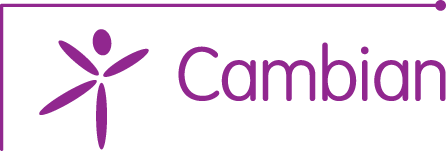It can be daunting with the amount of abbreviations and acronyms that appear when you receive a diagnosis or are looking into symptoms. We want to make it easier for you and so have put together a list of terms that you may see regularly across documents, brochures and this website.
AS - Asperger Syndrome
For more information on Asperger Syndrome, click here.
ASD - Autism Spectrum Disorder
For more information on Autism Spectrum Disorder, click here.
CAMHS - Child and Adolescent Mental Health Services
For more information on Child and Adolescent Mental Health Services, click here.
Complex Trauma
For more information on Complex Trauma, click here.
CSE - Child Sexual Exploitation
For more information on CSE, click here.
DCD - Developmental Co-ordination Disorder
This affects fine and gross motor skills, including balance, posture, walking, running and catching.
DSL - Designated Safeguarding Lead
The role of the Designated Safeguarding Lead was specified in the Children Act 2004 ensuring that every school and college designates a senior member of staff to take lead responsibility for child protection. They have responsibility at both a strategic level and on a day-to-day basis. Many of our schools DSL's are supported by Deputy Safeguarding Leads.
EHCP - Education, Health and Care Plan (replacing Statement of SEN)
An Education, Health & Care Plan is a legal document for children and young people with special educational needs and details their education, health and social requirements. For more information, click here.
IEP - Individual Education Plan
This is a plan designed for children with SEN (Social, Emotional Mental Health) to help them reach their potential in education.
Independent Special School
Usually owned by an individual or limited company or group of companies but can be a charity. Approved by the Secretary of State to take children with Statements of SEN, majority of placements funded by Local Education Authorities. Wholly funded by pupil fees and can be run on a profit making basis.
LEA - Local Education Authority
These are the local councils in England and Wales that are responsible for education in their jurisdiction.
LSCB - Local Safeguarding Children Board
This is a multi-agency body set up by each Local Authority and is there to co-ordinate what is done by everyone on the Board to safeguard and promote the welfare of children in the area, and ensuring the effectivness of what they do.
Maintained School
Schools that cater soley for special needs and are provided and funded by the Local Authority.
Non-Maintained Special School (also can be found as NMSS)
Approved as a special school under section 342 of the Education Act 1996. Non-profit making schools run by charitable trusts. NMSS schools are funded primarily through pupil fees charged to Local Authorities which place children there.
SEMH - Social, Emotional Mental Health
For more information, click here.
SEN - Special Educational Needs
This is a term that describes the needs of a child that has difficulties or a disability that makes learning hard for them than other children their age.
SENCo - Special Educational Needs Coordinator
A SENCo is a teacher that has overall responsibility for special educational needs in school and ensure that pupils with SEN have the necessary support to be able to learn at a similar pace to their peers.
SID - Sensory Integration Disorder (also known as Sensory Processing Disorder)
This is a condition where the brain has trouble receiving and responding to information that comes through the senses. For more information, click here.
SPD - Semantic Pragmatic Disorder
For more information, click here.
SpLD - Specific Learning Difficulties
This is an umbrella term used to cover a range of frequently co-occurring difficulties; many of those can be found here.
Triad of Impairment
A Triad of Impairment, is the defining characteristic of autism, as identified by Dr. Lorna Wing. This includes socialisation difficulties, communication difficulties and inflexibility of thought rigidity and thought process. For more information, click here.
Waking Day Curriculum
This refers to that fact that a child may need to be educated across all 'waking hours' and that a residential placement is necessary.
For more information or advice, contact us here, or call 0161 507 3723.



